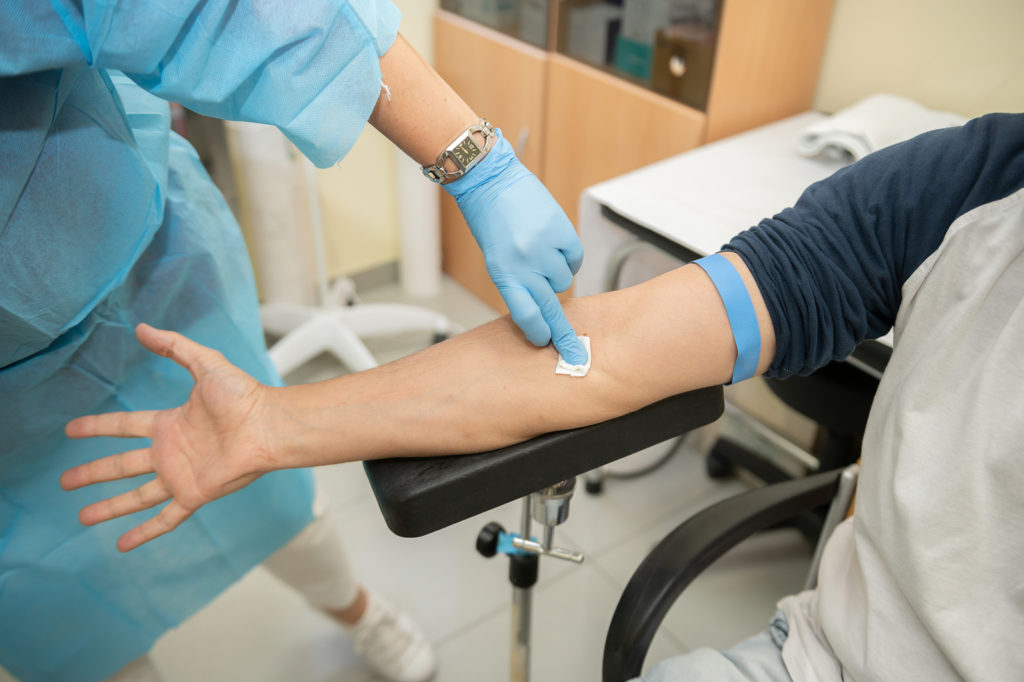Phlebotomy Schools in Alabama
Phlebotomists serve as healthcare support personnel and can work in a variety of medical facilities, including hospitals, physician offices, outpatient care centers, and laboratories. Many nurses and other medical professionals start out with phlebotomy training because the programs are short and allow students to obtain employment in the medical industry while completing longer training programs.
The national job outlook for phlebotomists through 2029 is excellent. The expected industry growth rate is 17%, which is faster than average. Those interested in starting a new career quickly with a high level of job security and limited educational expenses may want to consider the field of phlebotomy.
How Can I Find the Best Phlebotomy Training Program Near Me?
There are at least 10 educational establishments offering phlebotomy classes in Alabama. That includes established universities like Auburn University, smaller schools like Calhoun Community College, and specialized training facilities like the DCH School of Phlebotomy. Most of the legitimate programs are offered through community colleges.
You also have the option of attending an online phlebotomy training program if you want to study from home. That eliminates the need to report to in-person classes at prearranged times but may also make it more difficult to secure clinical training hours. Most in-person phlebotomy training programs in Alabama help students find facilities for suitable hands-on training.
When selecting a training program to learn phlebotomy, students should consider all of the following:
- Learning style
- Maximum budget
- Available time
- Program length
- Inclusion of clinical experience
- School reputation
What Is the Phlebotomy Certification/Licensing Process in Alabama?
The State of Alabama recommends certification for phlebotomists, but it isn't required. Many medical professionals receive training on the job and are later qualified to accept positions as phlebotomists. While some companies will offer on-the-job training for inexperienced new hires, most require significant experience or certification.
To obtain certification, future phlebotomists must pass the National Certified Phlebotomy Technician (NCPT) exam or another official phlebotomy certification examination. Completion of an official phlebotomy technician training program is the best way to secure the knowledge needed to pass the test.
Certification exams include questions to determine general knowledge as well as practical skills testing. The clinical hours included in most training programs are critical to students interested in passing the hands-on portion of the test or demonstrating working knowledge to potential employers.
Where Can I Find a Job as a Phlebotomist in Alabama?
Phlebotomists are important members of the medical team at facilities throughout Alabama. That includes hospitals and clinics where surgeries and other medical procedures are conducted. Many phlebotomists work in laboratories where patients are sent when a doctor needs to collect bloodwork, fecal matter, or other bodily fluids for testing.
Any medical facility that employs professionals capable of collecting bloodwork and other samples may hire phlebotomists. Work environments vary from rotating between rooms in a large hospital to working in a laboratory at one station with fast patient turnover.
What Is the Salary for a Phlebotomist in Alabama?
As of May 2020, the mean annual salary for phlebotomists in Alabama was just over $32,000. The mean hourly wage was $15.61. That places Alabama phlebotomists a bit below the national average pay scale. The national annual mean in 2020 was over $37,000.
Certified phlebotomist technicians may earn higher salaries than those lacking certification. Alabama phlebotomists may increase their earnings by obtaining certification or working until a significant history of experience is achieved.
Phlebotomy Schools By City
The following cities in Alabama offer phlebotomy training schools and courses.
- Birmingham, AL 4 schools
- Mobile, AL 5 schools
- Montgomery, AL 5 schools
